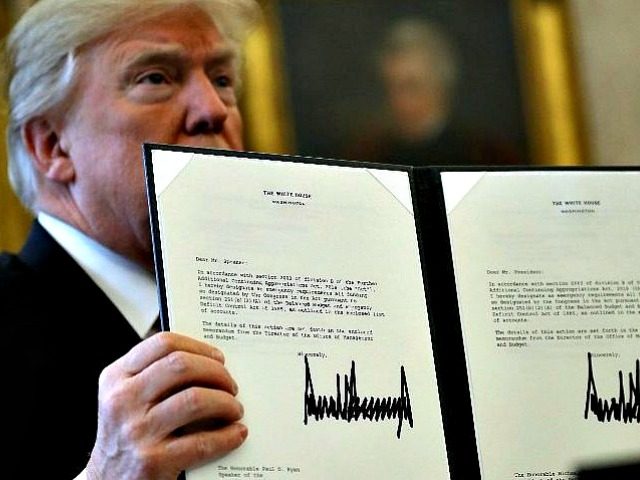A study from the University of Wisconsin-Madison released this week revealed that President Donald Trump’s Tax Cuts and Jobs Act led to an increase in defined-benefit pension plans in 2017.
President Trump signed the Tax Cuts and Jobs Act in December, which lowered the corporate tax rate from 35 to 21 percent, starting in 2018. The researchers found that the rate reduction incentivized companies to increase their contributions in 2017 so that they can take advantage of the deductions at the higher tax rate in 2017.
Dan Lynch, one of the authors of the paper, said, “Firms contributed more to their pensions in 2017 because they could get a tax deduction at 35 percent.”
The researchers found that on average, the companies increased their unexpected pension contributions by $16 million each. This increased contribution amounts to roughly 24 percent increase from 2014 to 2016.
The researchers contend in their paper:
Our findings suggest the reduction in the corporate tax rate incentivized firms to increase pension contributions, resulting in a wealth transfer from capital to labor. Importantly, this was not a primary consideration in the decision to lower the corporate tax rate. Our results suggest a potential unintended consequence of the rate reduction.
The American economy continues to benefit from Trump’s tax cut legislation.
The Conference Board’s Consumer Confidence Index found that consumer confidence continues to stay a 17-year high.
President Trump tweeted on Monday, “A Democratic lawmaker just introduced a bill to Repeal the GOP Tax Cuts (no chance). This is too good to be true for Republicans…Remember, the Nancy Pelosi Dems are also weak on Crime, the Border and want to be gentle and kind to MS-13 gang members…not good!”

COMMENTS
Please let us know if you're having issues with commenting.